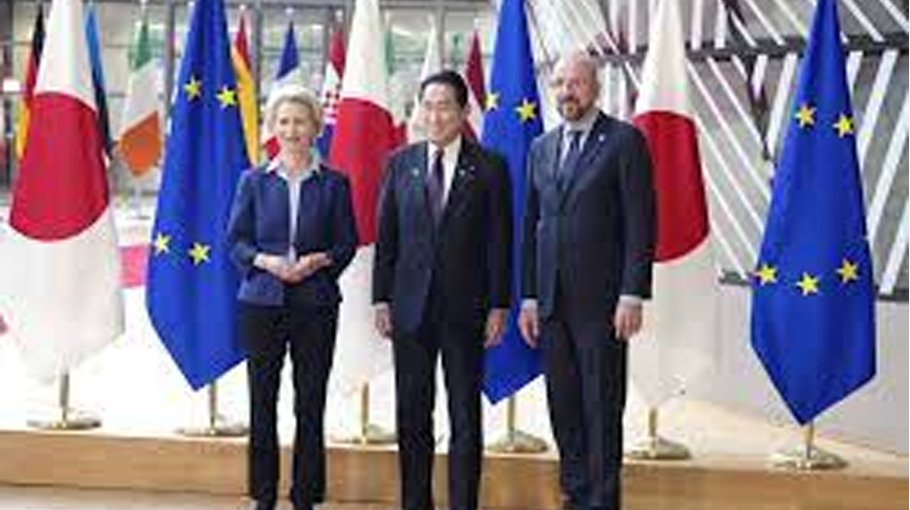The Japan–EU digital partnership

Japan and the European Union held their first ministerial-level council meeting on 3 July 2023 as part of a digital partnership announced last year. A joint statement published afterward reveals that the partnership is being built around four pillars, including semiconductors, rules on digital economy, submarine cables and cooperation on high-performance computing including 5G and beyond.
Industrial policy on semiconductors and rules on digital economy stand out as particularly important facets of the burgeoning Japan–EU Digital Partnership.
Semiconductors are now subject to industrial policy to attract advanced firms and encourage innovation. The Japan–EU joint statement cites a memorandum calling for in-depth cooperation on an early warning mechanism for the semiconductor supply chains, research and development for semiconductors, advanced skills for the semiconductor industry, use cases of semiconductor applications and subsidy transparency.
Taken together, it appears that both Tokyo and Brussels are invested in novel exploration of coordination of industrial policy. It is unlikely that either will become a dominant force in the semiconductor industry, but both have the potential to develop specific cutting-edge technologies. Their current competitiveness resides in the design and high-end semiconductor manufacturing equipment for Europe and some chemical materials, wafers, optic equipment and other manufacturing equipment for Japan. But technological development and turnovers of leading firms occur extremely fast in this industry, making it near impossible to predict what the competitive situation will be in the coming years. Developing a thick industrial agglomeration seems to be the most promising way to amplify technological competition, and that is why countries such as the United States look to subsidy competition.
Japanese and European Union policymakers hope to compete in this space and also provide subsidies, despite concerns about a low probability of success as well as possible inconsistencies with existing trade norms.
But government-to-government coordinated industrial policy may not be easy. Private firms, not governments, possess most of the important technologies and production knowhow. Firms may not want to share information lest they jeopardise proprietary technology and business secrets. Although Japanese trade officials have already begun reaching out to key companies to advance the Japan–EU Digital Partnership, they must recall the failure of government-led cooperation among private firms in the 1980s and 1990s. International coordination will be even more difficult. The European Union has the additional challenge of bridging between super-government structures and each member state. Subsidies may give the governments some grip on the private sector, but not necessarily in the middle and long-term perspectives.
Fukunari Kimura is Professor at the Faculty of Economics, Keio University, and Chief Economist, Economic Research Institute for ASEAN and East Asia (ERIA)
Source: East Asia Forum



